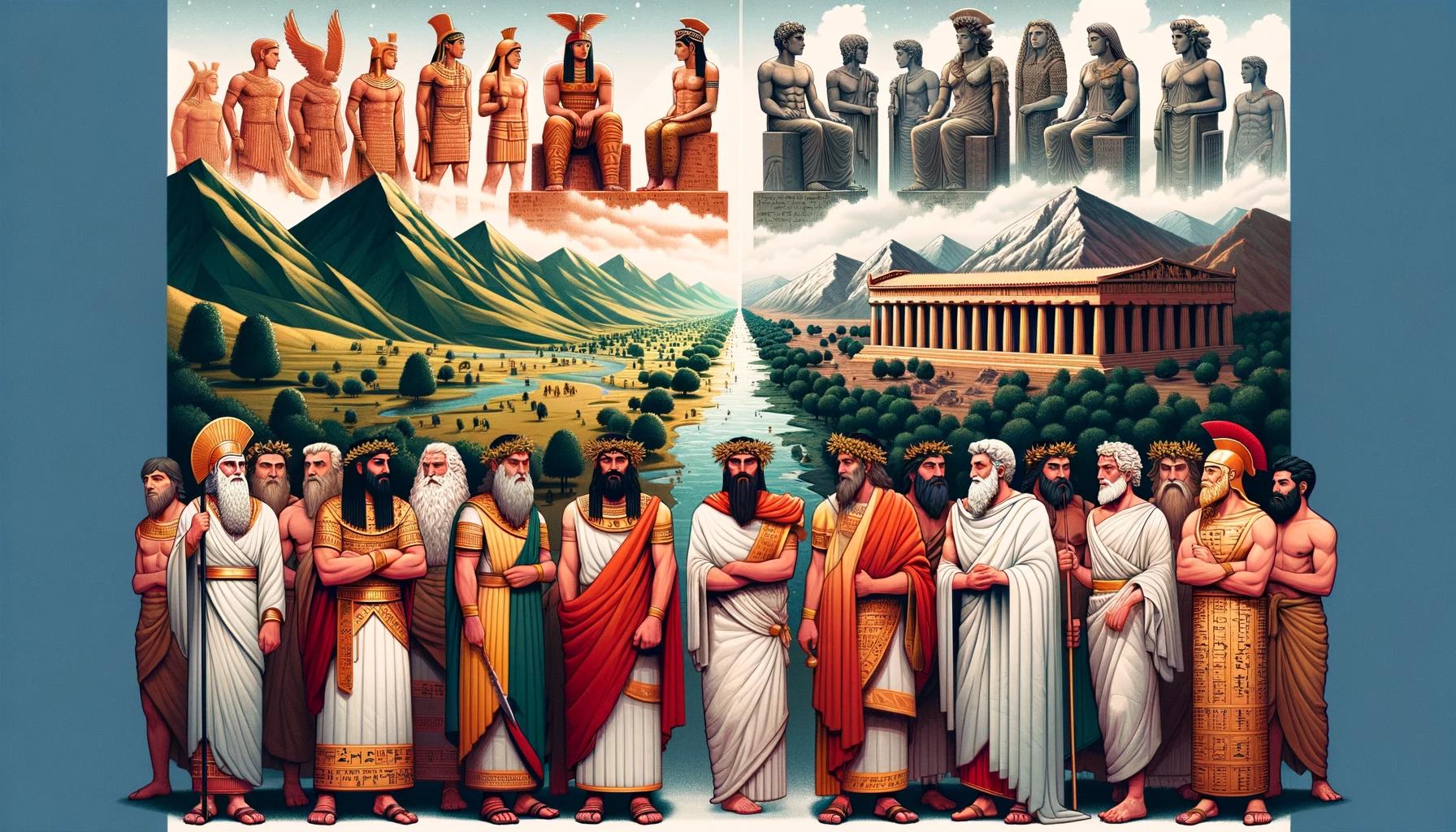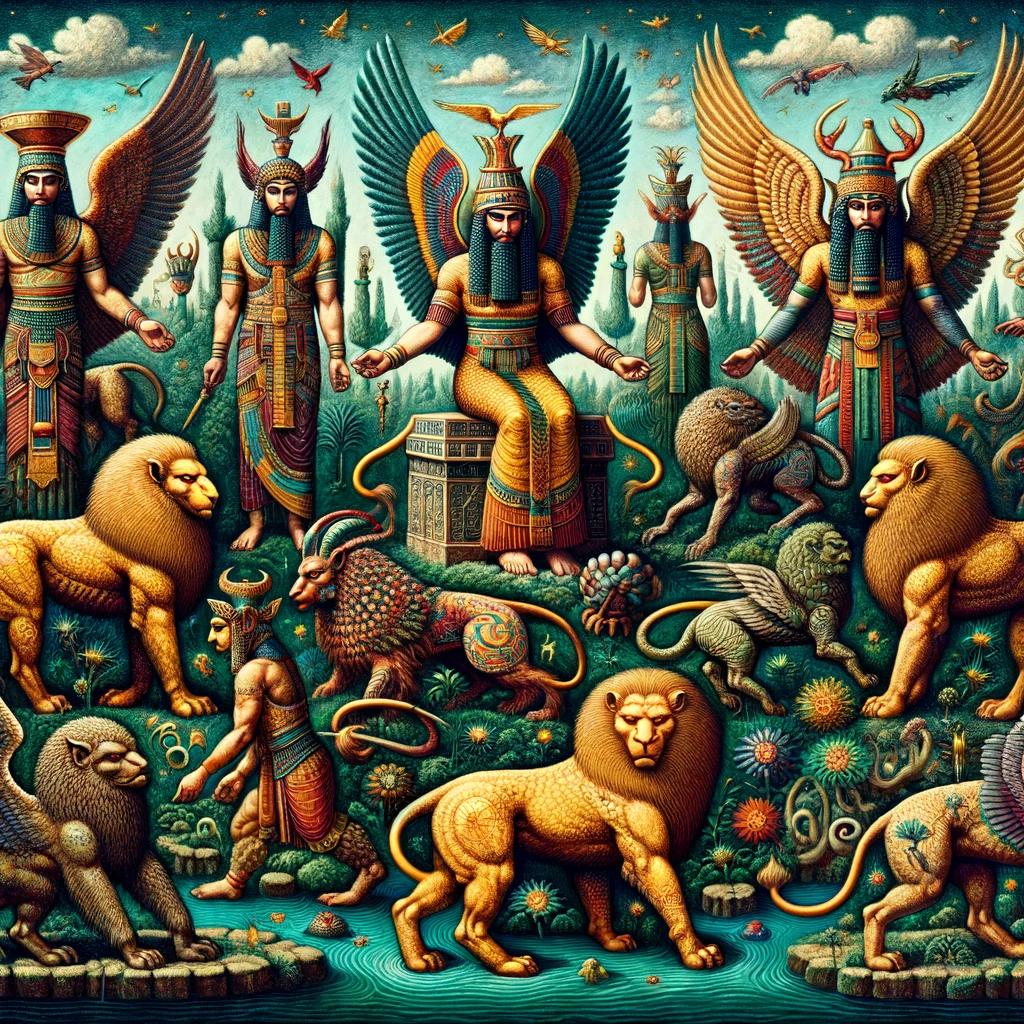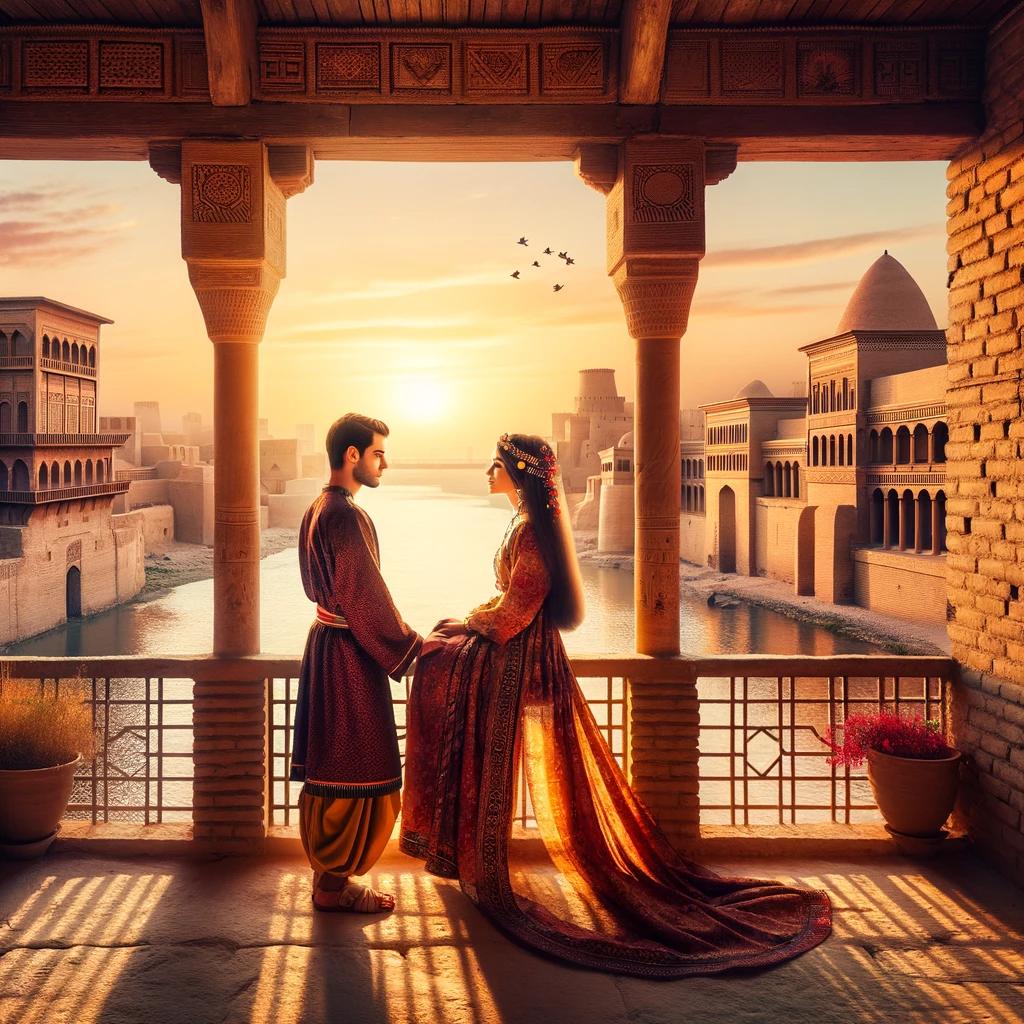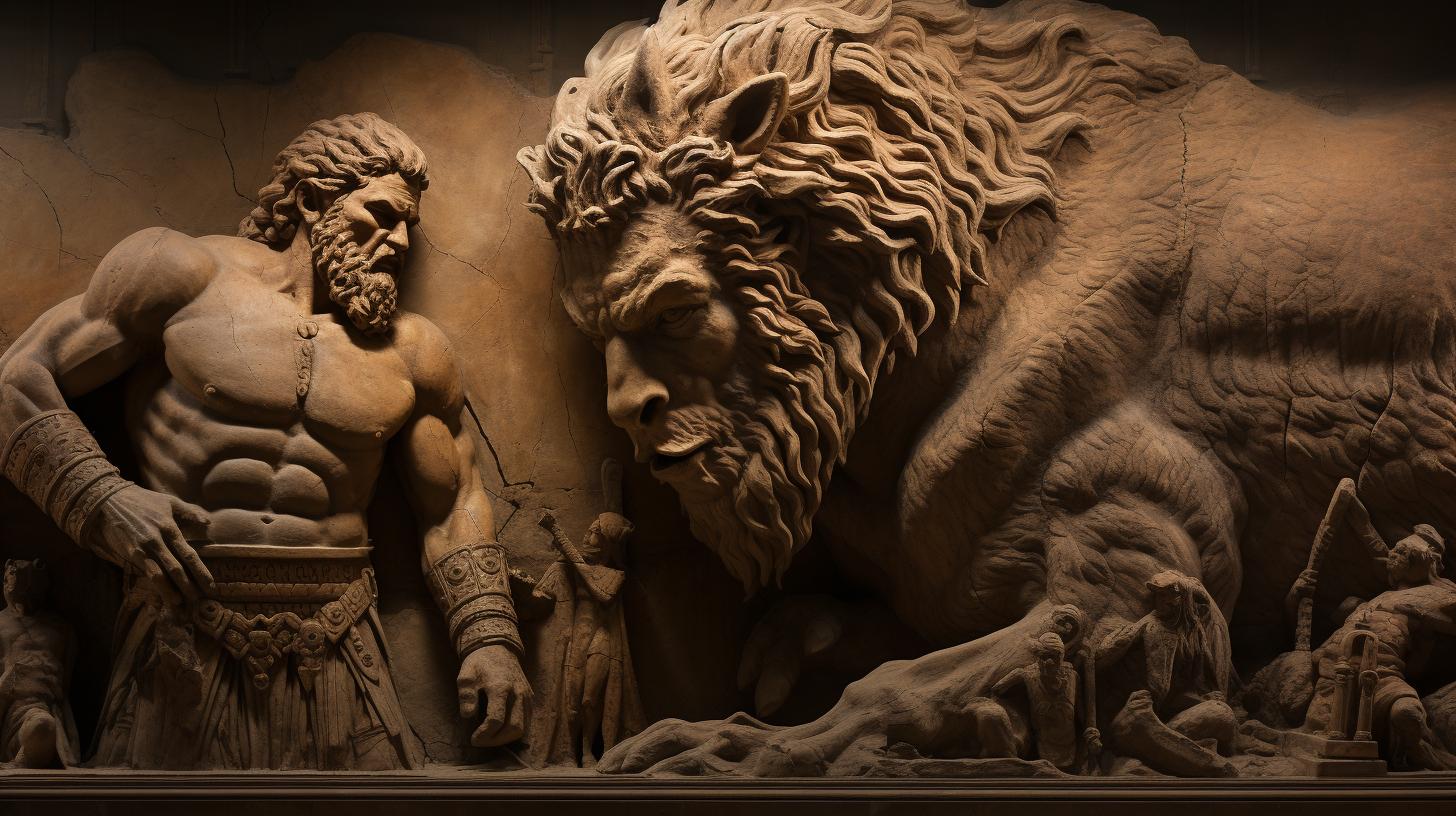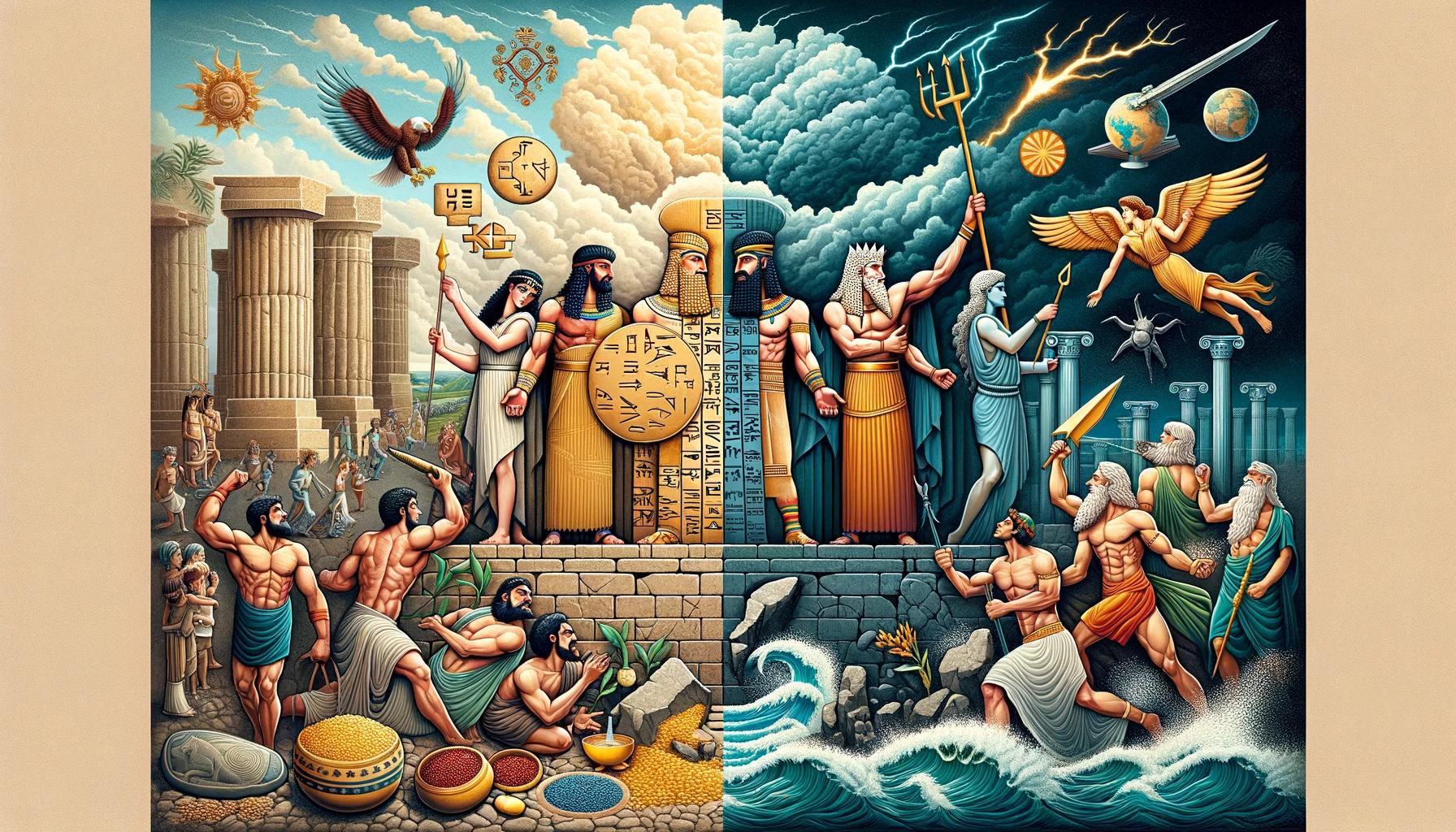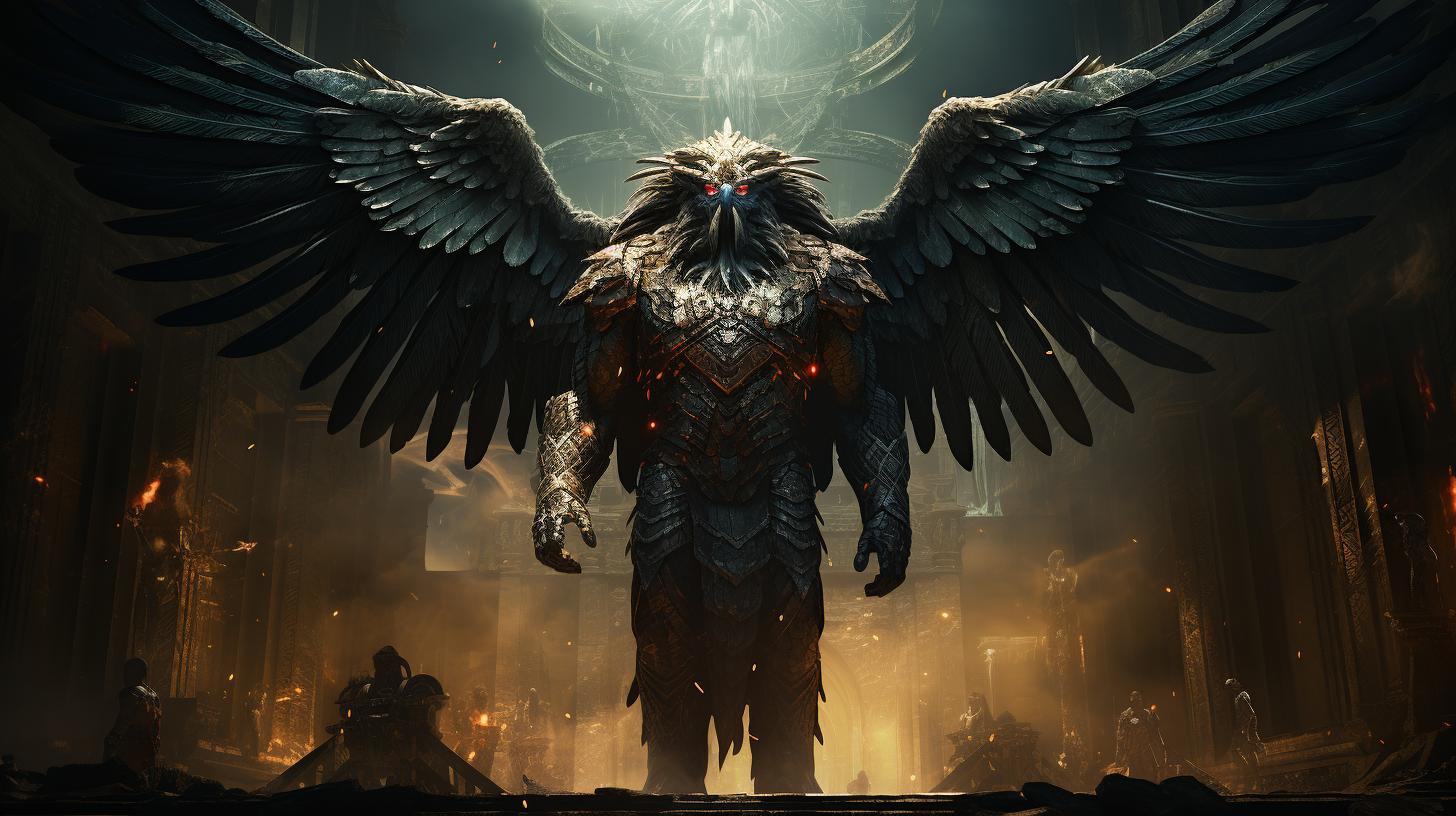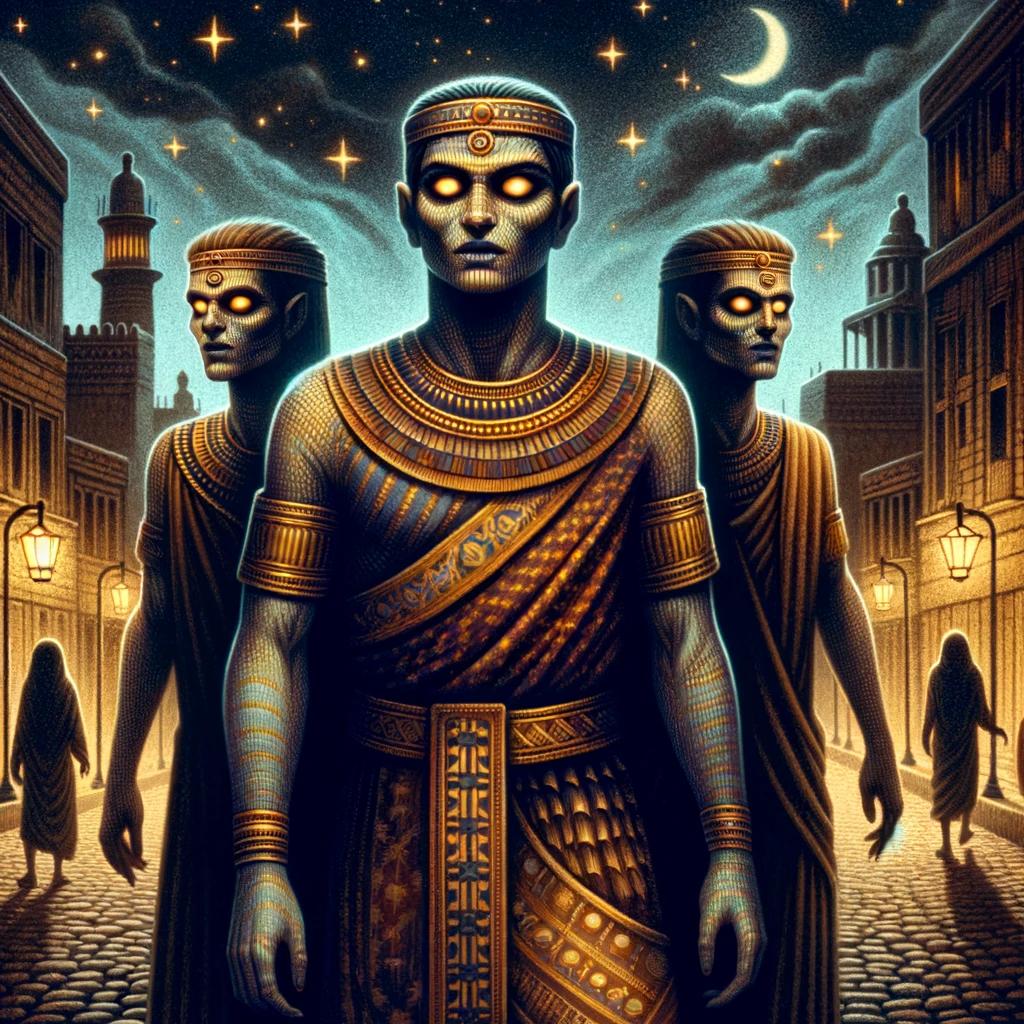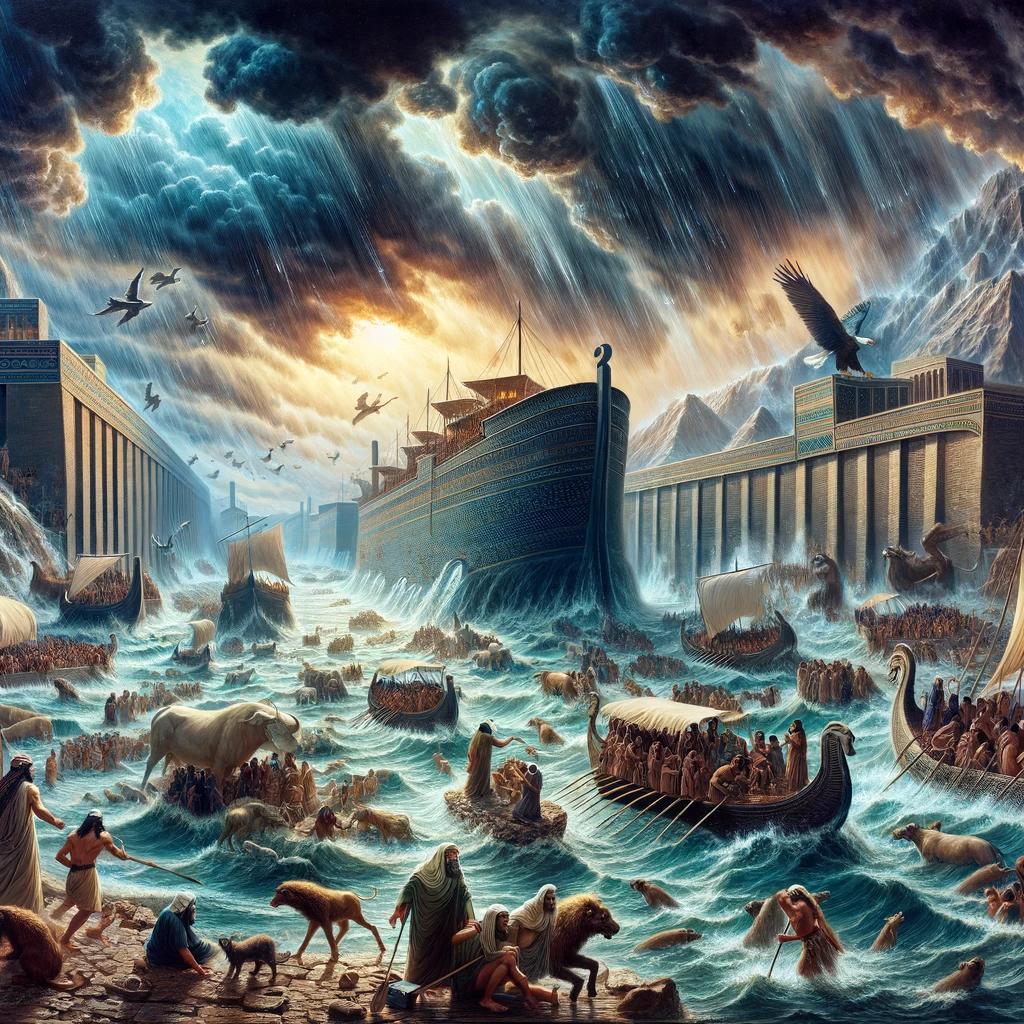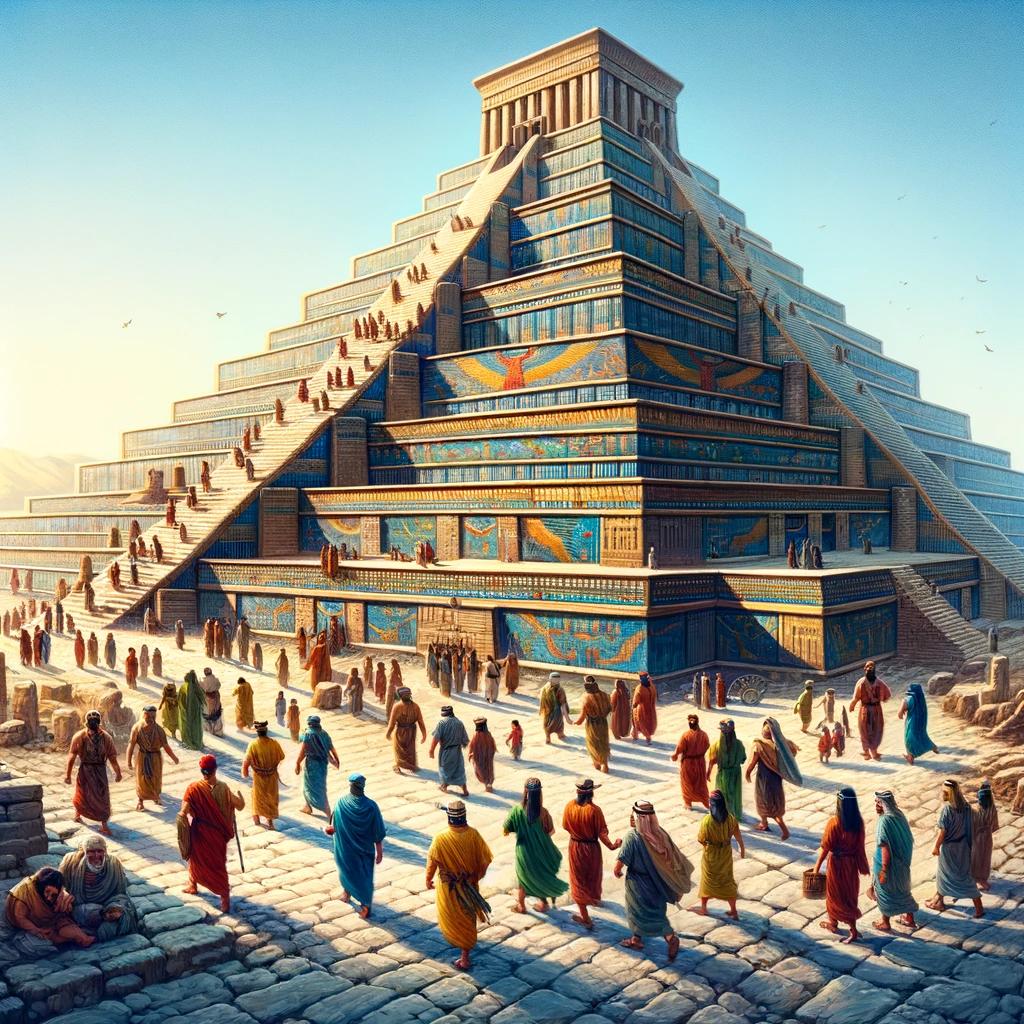Mesopotamian Gods Vs Greek Gods: A Clash of Ancient Deities
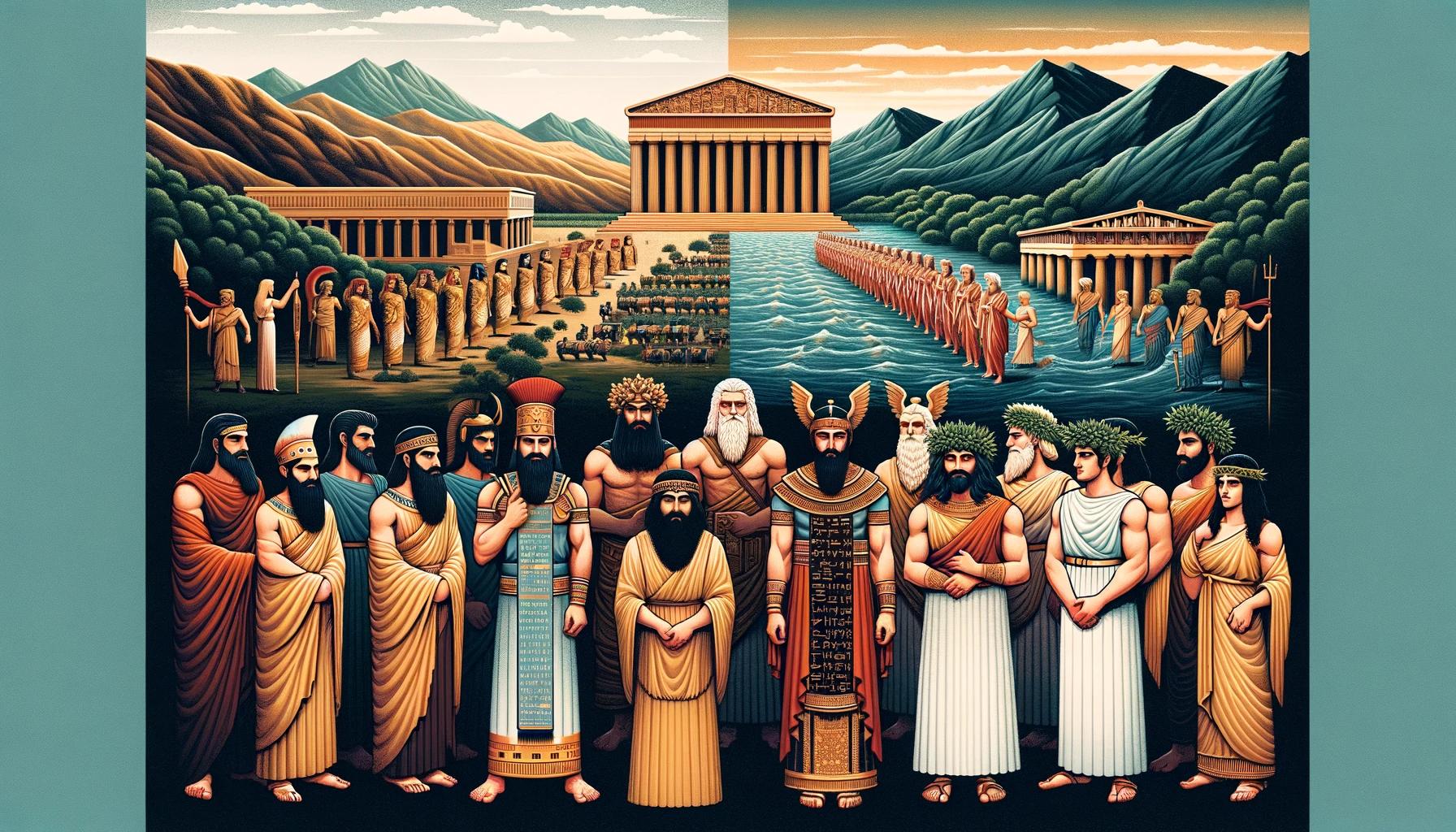
Mesopotamian gods and Greek gods were prominent figures in the ancient civilizations of Mesopotamia and Greece, respectively. Both pantheons played significant roles in shaping the religious, cultural, and societal aspects of their respective civilizations.
This article explores the beliefs, roles, and powers of these gods, highlighting both the similarities and differences between them. Additionally, it examines the lasting influence of these gods on art, architecture, literature, and modern culture.
Join us on a journey to discover the intriguing world of Mesopotamian and Greek gods.
Ancient Mesopotamian Gods
In ancient Mesopotamia, the gods played a central role in the religious beliefs and practices of the people. The Mesopotamian pantheon consisted of numerous deities, each with their own sphere of influence and significance.
These divine beings were worshipped fervently and believed to have power and control over various aspects of life.
Mesopotamian Pantheon and Beliefs
The Mesopotamian pantheon was a complex hierarchy of gods, representing different forces and natural elements. Their belief system revolved around the idea that the gods governed all aspects of existence, including aspects of nature, fertility, war, and the afterlife.
They believed in the existence of multiple gods, each with distinct personalities, roles, and powers.
Main Mesopotamian Gods and Goddesses
- Anu: The highest-ranking god, ruler of the heavens and patron god of kings
- Enlil: God of wind, storms, and agriculture, viewed as the supreme deity in some periods
- Ishtar: Goddess of love, beauty, fertility, and war
- Marduk: Patron god of Babylon, associated with creation, order, and justice
- Gilgamesh: Legendary hero and demigod, central figure in the Epic of Gilgamesh
Roles and Powers of Mesopotamian Gods
Each Mesopotamian god had specific roles and powers associated with their sphere of influence.
For example, Ishtar was believed to control matters of love, fertility, and war, while Enki was associated with wisdom, freshwater, and creation. The roles of these gods influenced the lives of the people, who sought their favor and blessings through offerings and rituals.
Ancient Greek Gods
The ancient Greek civilization revered a pantheon of gods and goddesses who held immense power and influence over various aspects of the world. Understanding their pantheon and beliefs, as well as the main Greek gods and goddesses, provides insight into their rich mythology and culture.
Greek Pantheon and Beliefs
The Greeks believed in a complex pantheon of gods and goddesses who governed different realms and embodied various aspects of life. They believed that these deities were immortal beings with human-like qualities and characteristics.
Main Greek Gods and Goddesses
- Zeus: The king of the gods, ruler of Mount Olympus, and the god of thunder and lightning.
- Hera: The queen of the gods, goddess of marriage and childbirth.
- Apollo: The god of music, poetry, healing, and the sun.
- Athena: The goddess of wisdom, courage, and strategic warfare.
- Poseidon: The god of the sea, earthquakes, and horses.
- Aphrodite: The goddess of love, beauty, and desire.
- Artemis: The goddess of hunting, wilderness, and childbirth.
- Hermes: The messenger of the gods, associated with communication, travel, and commerce.
Roles and Powers of Greek Gods
The Greek gods had various roles and powers, each governing different aspects of life and natural phenomena.
For example, Zeus controlled the weather, Hera protected marriage, and Athena guided strategic decisions in battles. Their powers extended to influence human destinies, offering blessings or punishments based on their actions.
A Comparison of Mesopotamian and Greek Gods
In examining the Mesopotamian and Greek gods, we can uncover both similarities and differences between these deities, shedding light on the diverse beliefs and cultures of these ancient civilizations.
Similarities Between Mesopotamian and Greek Gods
- Both Mesopotamian and Greek gods were believed to possess human-like qualities and manifested themselves in physical forms.
- Both pantheons consisted of various gods and goddesses, each with their own distinct roles and domains.
- Both civilizations worshipped their gods through prayer, sacrifices, and rituals.
- Both Mesopotamian and Greek gods played significant roles in the lives of their respective worshippers, influencing various aspects of human existence such as love, war, fertility, and the natural world.
Differences Between Mesopotamian and Greek Gods
- Mesopotamian gods were considered more authoritarian and capricious, while Greek gods exhibited more human-like emotions and personalities.
- The Mesopotamian pantheon was often associated with specific cities and regions, whereas Greek gods were worshipped throughout the various city-states.
- Mesopotamian gods were often depicted as supreme figures, while Greek gods had a more equal and interconnected hierarchy.
- The worship of Mesopotamian gods involved complex rituals within elaborate temple structures, while Greek gods were often invoked in more casual and personal settings.
Exploring the similarities and differences between the Mesopotamian and Greek gods provides valuable insight into the distinct religious beliefs and practices of these two ancient civilizations.
Understanding these ancient deities deepens our understanding of the cultures that revered them and their enduring influence on subsequent civilizations.
Cultural Influence of Mesopotamian and Greek Gods
The cultural influence of Mesopotamian and Greek gods extends beyond religious beliefs. Their impact can be seen in various aspects of art and architecture, lessons and morals derived from mythology, as well as religious practices and rituals.
Impact on Art and Architecture
The gods of both Mesopotamia and Greece were often depicted in artwork and influenced the architectural styles of their civilizations. Mesopotamian temples, such as the ziggurats, showcased grandeur and verticality as a symbol of reaching towards the heavens.
Greek sculptures, like the famous Parthenon friezes, embodied the idealized human form and conveyed divine beauty.
Lessons and Morals from Mythology
The myths and stories surrounding Mesopotamian and Greek gods served as a source of moral lessons and guidance for their respective societies. These tales taught virtues such as bravery, wisdom, and honor, while cautioning against hubris and disobedience.
Through these myths, the gods’ actions and consequences provided lessons that shaped societal norms and values.
Religious Practices and Rituals
- Mesopotamian Religious Practices:
- Temples dedicated to specific gods served as centers of religious worship and rituals.
- Rituals, including offerings, purification ceremonies, and prayers, were conducted to appease the gods and seek their favor.
- Divination, through methods like liver-reading and dream interpretation, played a significant role in seeking divine guidance and predicting the future.
- Greek Religious Practices:
- Greek city-states had temples and sanctuaries where rituals, sacrifices, and festivals were held to honor the gods.
- Priests and priestesses played vital roles as intermediaries between humans and gods, leading rituals and interpreting signs and omens.
- Public festivals, such as the Olympic Games and Dionysian celebrations, combined religious devotion with communal celebrations and competitions.
These religious practices and rituals connected individuals to their respective gods and provided a sense of spiritual guidance, societal cohesion, and community identity.
The Power of Gods in Ancient Mesopotamian Cities
The influence of Mesopotamian gods on society and governance was deeply rooted in the ancient cities of Mesopotamia. The belief in divine powers shaped the social structure and impacted political systems.
Influence on Society and Governance
The Mesopotamian gods played a significant role in shaping the social structure of ancient cities. They were believed to be the ultimate source of power and authority, and their influence extended to various aspects of society.
The kings, who were considered representatives of the gods, ruled with absolute power and were responsible for maintaining order and justice.
The gods were not only seen as divine beings but also as protectors and providers for the people.
Their blessings were sought for fertility, abundant harvests, and protection from natural disasters and enemies. This belief in divine protection created a sense of unity and cohesion among the citizens.
Moreover, the gods’ influence extended to the legal system.
The Code of Hammurabi, one of the earliest known legal codes, was believed to have been inspired by the gods. It established guidelines for justice and the protection of citizens’ rights, ensuring order and fairness in society.
Temples and Worship of Mesopotamian Gods
Temples dedicated to Mesopotamian gods were the epicenters of religious and social activities within ancient cities. These grand structures served as places of worship, where offerings and sacrifices were made to appease the gods and ensure their favor.
Inside the temples, priests and priestesses performed rituals and ceremonies on behalf of the citizens. They served as intermediaries between the people and the gods, conveying prayers and seeking divine guidance.
The worship of gods played an integral role in daily life, with festivals and processions held to honor and celebrate their powers.
The temples also served as centers of education and administration.
They housed the vast collection of written texts, including religious texts, legal agreements, and historical records. These archives were closely tied to religious practices as they contained the knowledge and wisdom believed to be bestowed by the gods.
Overall, the temples and worship of Mesopotamian gods were fundamental to the functioning of ancient cities. They provided a sense of communal identity, regulated social norms, and reinforced the authority of the gods and their impact on daily life.
Gods in Ancient Greek City-States
The Greek Gods’ Relationship with Mortals
The ancient Greeks believed in a deep and intricate relationship between their gods and mortals. The gods were seen as powerful beings who controlled various aspects of human life, including fate, love, and war.
The relationship between gods and mortals was built on a complex system of worship, rituals, and offerings.
Greek mythology tells stories of gods intervening in mortal affairs, both to help and hinder them.
These interactions often came in the form of divine guidance, dreams, or even direct intervention in battles or personal struggles. Mortals sought favor from the gods through sacrifices, prayers, and participation in religious festivals.
Greek gods were believed to have human-like emotions, desires, and flaws, making their relationship with mortals relatable and impactful. This connection allowed mortals to seek guidance, protection, and blessings from the gods, while also being subject to their whims and punishments.
Worship and Festivals in Greece
Worship of the Greek gods played a central role in ancient Greek city-states. Each city-state had its own patron deity, whom they revered as the protector and patron of their community.
Worshippers gathered in temples, sanctuaries, and outdoor spaces to honor and offer sacrifices to their respective gods.
Religious festivals, known as panhellenic games, were held regularly to honor the gods and foster unity among different city-states.
The most famous of these games were the Olympic Games, held in Olympia every four years, dedicated to Zeus. These events included athletic competitions, musical performances, and religious rituals.
Throughout the year, the Greek calendar was filled with various religious festivals dedicated to different gods and goddesses.
These celebrations involved processions, feasts, music, drama, and offerings. The festivals were an essential aspect of Greek identity, bringing people together in collective worship and celebration.
Whether it was through daily rituals, offerings, or elaborate festivals, worship of the Greek gods was a fundamental part of ancient Greek city-states.
It provided a sense of communal identity, spiritual connection, and reverence for the gods who played a significant role in the lives of the Greeks.
Legacy and Influence of Ancient Greek Gods
The ancient Greek gods have left a profound legacy on various aspects of modern culture, media, literature, philosophy, and art.
Their rich mythology and fascinating stories continue to captivate and inspire people around the world.
Greek Gods in Modern Culture and Media
The influence of Greek gods can be seen prominently in modern culture and media. Their stories have served as the basis for numerous films, television shows, and books. From popular series like Percy Jackson to blockbuster movies like Clash of the Titans, the legacy of Greek gods lives on in the entertainment industry.
Additionally, Greek gods have become iconic figures in popular culture. Their names and images are often referenced in advertising, fashion, and even sports. For example, Nike, the Greek goddess of victory, is the namesake of a well-known athletic company.
Contributions to Western Literature, Philosophy, and Art
The influence of ancient Greek gods extends beyond the realm of popular culture. Their stories and beliefs have had a significant impact on Western literature, philosophy, and art.
In terms of literature, Greek mythology has served as a source of inspiration for countless authors throughout history.
The epic poems of Homer, such as the Iliad and the Odyssey, are prime examples of the enduring literary influence of Greek gods.
Moreover, the philosophical ideas of ancient Greek thinkers, such as Plato and Aristotle, often explored concepts related to the gods.
Their discussions on divine nature, ethics, and metaphysics shaped the development of Western philosophy.
Artistically, Greek gods have been a popular subject in sculpture, painting, and architecture. Their idealized forms, intricate stories, and divine attributes have been represented in masterpieces such as the statue of Zeus at Olympia and the Parthenon in Athens.
- Greek gods continue to inspire modern culture and media through films, TV shows, and books.
- Their names and images are often referenced in advertising, fashion, and sports.
- Contributions to Western literature include the works of Homer and other authors influenced by Greek mythology.
- The philosophical ideas of Greek thinkers have shaped Western philosophy.
- Greek gods have been popular subjects in sculpture, painting, and architecture.
In conclusion, the legacy and influence of ancient Greek gods are far-reaching.
Their stories and beliefs continue to captivate audiences in modern culture and media, while their impact on literature, philosophy, and art remains profound. The enduring presence of these gods in various forms is a testament to their timeless significance.
.

